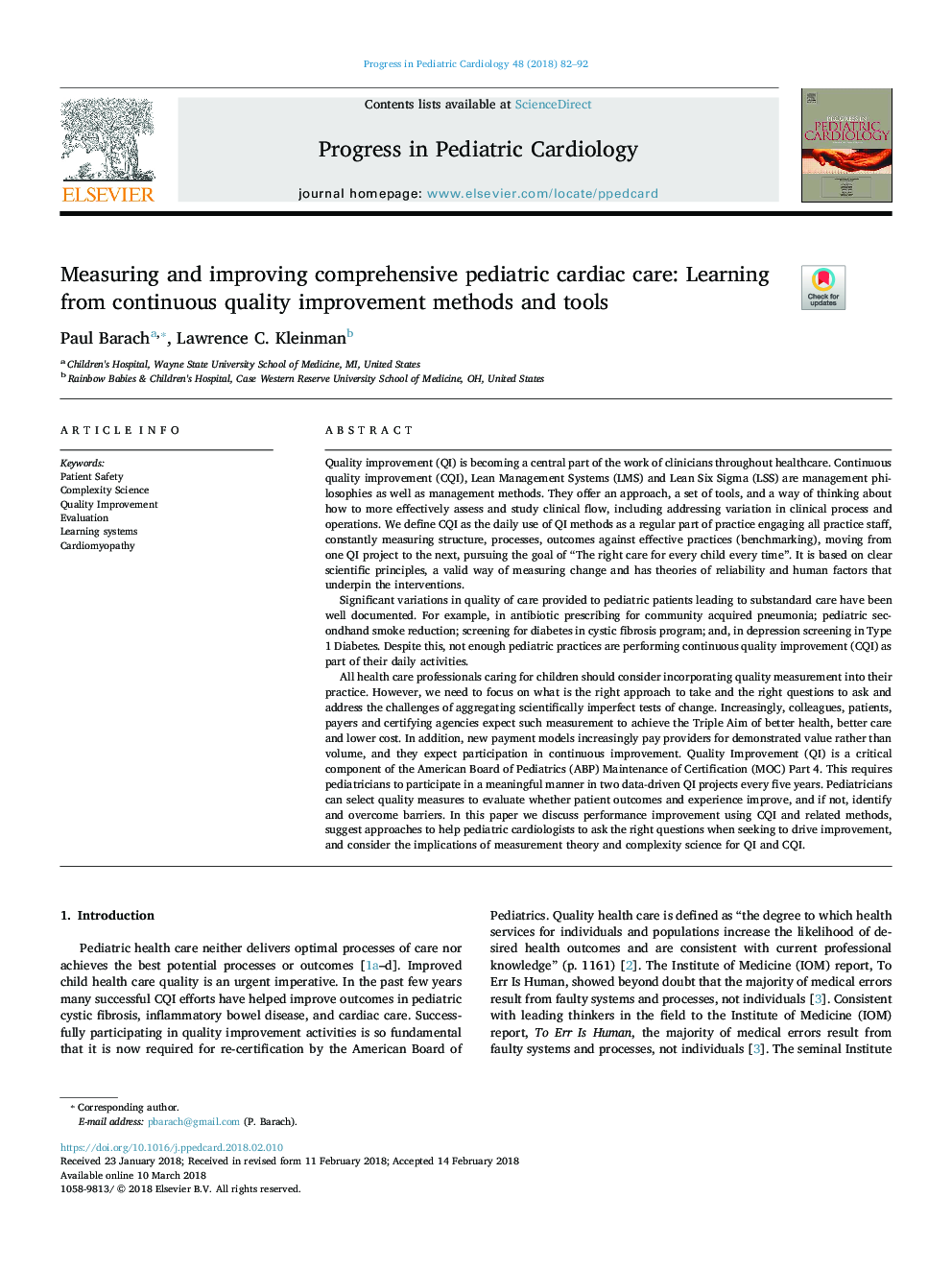| Article ID | Journal | Published Year | Pages | File Type |
|---|---|---|---|---|
| 8675347 | Progress in Pediatric Cardiology | 2018 | 11 Pages |
Abstract
All health care professionals caring for children should consider incorporating quality measurement into their practice. However, we need to focus on what is the right approach to take and the right questions to ask and address the challenges of aggregating scientifically imperfect tests of change. Increasingly, colleagues, patients, payers and certifying agencies expect such measurement to achieve the Triple Aim of better health, better care and lower cost. In addition, new payment models increasingly pay providers for demonstrated value rather than volume, and they expect participation in continuous improvement. Quality Improvement (QI) is a critical component of the American Board of Pediatrics (ABP) Maintenance of Certification (MOC) Part 4. This requires pediatricians to participate in a meaningful manner in two data-driven QI projects every five years. Pediatricians can select quality measures to evaluate whether patient outcomes and experience improve, and if not, identify and overcome barriers. In this paper we discuss performance improvement using CQI and related methods, suggest approaches to help pediatric cardiologists to ask the right questions when seeking to drive improvement, and consider the implications of measurement theory and complexity science for QI and CQI.
Keywords
Related Topics
Health Sciences
Medicine and Dentistry
Cardiology and Cardiovascular Medicine
Authors
Paul Barach, Lawrence C. Kleinman,
